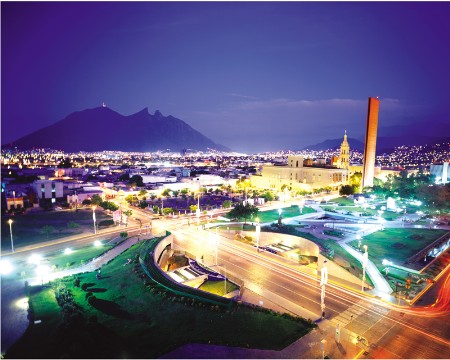
Monterrey, Mexico
蒙特里 墨西哥undefined
Unlike San Luis Obispans, the people of Monterrey don’t enjoy high household incomes or access to good healthcare. Instead, there’s a profound sense of gratitude for the new political freedom enjoyed since the oppressive Institutional Revolutionary Party lost power in 2000—the first time in nearly a century—as well as an emphasis on social life over work. “The American system is good for productivity, but not for the soul,” Miguel Basanez, a political scientist who lives in Monterrey told Buettner. Another reason Monterrey residents may be so happy is their faith in God and family, and their ability to tough it out through bad times. “We laugh at sickness, poverty and even death,” says Basanez. “We even have a holiday to celebrate death. November 2, the Day of the Dead, is one of the biggest holidays of the year.”
與圣路易斯-奧比斯波不同,蒙特里的市民沒有很高的家庭收入,也不能享受良好的醫(yī)療照顧。但是,自2000年暴虐的革命制度黨失去政權(quán)時(shí),人們內(nèi)心深處感到應(yīng)該感謝享受到的新的政治自由---這幾乎是一個(gè)世紀(jì)以來的第一次---同時(shí),相對(duì)于工作人們更重視社會(huì)生活。“美國的制度對(duì)于生產(chǎn)力是有利的,但卻不利于人”住在蒙特里的一位政治科學(xué)家米格爾巴薩內(nèi)斯告訴比納特,蒙特里居民也許很幸福的另一個(gè)原因是他們相信上帝,相信家庭,相信他們能夠度過艱難的日子。“我們笑對(duì)疾病、貧窮和死亡。”巴薩內(nèi)斯說,“我們甚至有個(gè)節(jié)日來慶祝死亡。十月二日,就是死亡日,也是一年中最重大的節(jié)日之一。”













